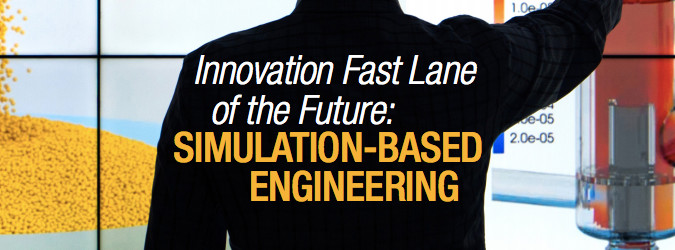By Dr. Cynthia Powell
I magine being able to design and optimize an entire fossil-fuel power plant, from fuel processing, through energy conversion, to power distribution, and to include the integration of pollution control devices to assure near-zero emissions, without leaving your desk. At NETL, high-performance computing is bringing once-impossible opportunities and achievements to energy R&D. Simulation-based engineering has emerged alongside laboratory work and prototype, or pilot scale, testing as a necessary tool in the discovery and development of technologies for sustainable energy systems, enabling scientists and engineers to do their work faster, cheaper, and in a more interconnected manner than physical approaches alone. Simulation-based engineering has become a major part of the way NETL does its job and enables others to do theirs, from the discovery and development of new materials, through the design of ultra-efficient energy
conversion devices, to the integration of processes in the design of new affordable and environmentally sustainable energy systems.
Simulation-based engineering refers to the application of computational models to the study and prediction of the behavior of engineered systems. Leveraging the tremendous power of today’s computers, engineers are now able to more efficiently design new materials, devices, and systems, and to better predict and optimize their performance. NETL has developed an extensive portfolio of simulation-based engineering methods, and in the process, has taken a place at the forefront of energy systems modeling.
The advantage of these methods is that the results of months or even years of laboratory experimentation and testing can be obtained at the computer.
Simulations can facilitate the engineering of new materials and accurately predict performance under a range of conditions. Simulations can accurately model complex systems, such as the performance, costs, and environmental impacts of a modern power plant. With recent advances,
simulations can be used to study and understand emergent phenomena that may be difficult, or impossible, to observe in the lab.
NETL researchers and analysts model not only the physical-science aspects
of materials, devices, systems, and processes, but also the costs, markets,
and environmental impacts throughout a technology’s life cycle, to understand the real-world prospects for new technology implementation. These models enable simulation of processes and environments for purposes as diverse as research, technology assessment, and forecasting.
Many of NETL’s models have been packaged as tools, and made available
to the public for design, optimization, and planning purposes throughout energy-related industries.
Faster, Better, Cheaper Technology Development
Simulation-based engineering involves the use of computer models to predict the modeled systems’ behavior. The models are mathematical representations of systems or processes, sufficiently accurate for the task at hand, but simplified enough to rapidly and efficiently generate the desired results.
NETL uses simulation-based engineering to accelerate development of technologies at reduced cost. The lab has become a lead developer of tools and practices for fossil energy engineering. In 2016, NETL won two R&D 100
awards for products based on computational engineering: Computationally Optimized Heat Treatment of Metal Alloys and the Carbon Capture Simulation Initiative (CCSI) Toolset.
This modeling expertise serves as a source of innovation and technology transfer; and simulation-based engineering methods bring further advantages for energy technology development to the lab.
Computer models of energy systems are easier to modify than physical systems, representing another advantage of simulation-based engineering. In other words, simulations can be used to explore a greater range of system’s behavior than is typically possible with laboratory and pilot-scale experiments; thus the resulting technologies will be better engineered. Simulation, however, cannot replace physical experimentation—at least not yet. Models are built from data that are collected in the laboratory or at the power plant. Validation of models and their results also requires “real” data, collected under “real life” conditions.
The ability to design and develop technologies faster, better, and cheaper has wide appeal; and simulation-based engineering is being extended to virtually all corners of the engineered world. NETL is at the forefront of this revolution in the field of fossil energy technology, making pioneering contributions across the fossil energy research agenda, from development of materials able to withstand the high temperatures and pressures needed for highly efficient ultra-supercritical coal power plants and hydrogen-fueled turbines, to the design of hybrid fuel cell/gas turbine power plants. NETL’s simulation capabilities for analysis of processes, systems, and markets extend simulation-based engineering out to the domains of technology development and adoption processes.

